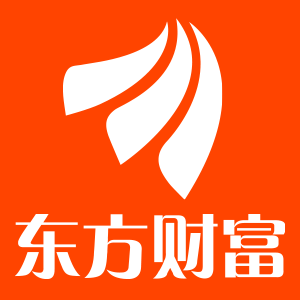10.5
This group includes other education (10.5.0). In addition to music, dancing, sports (09.6.9.0)
Offline and online classes with independent tutors based on a contract or oral agreement (for example, assistance in mastering the school curriculum, writing coursework, preparing for entrance and final exams)
Offline and online classes, in courses or with an individual teacher (for example, learning foreign languages). Including international travel, language tests, information technology courses. Including individual or group classes with a speech therapist-teacher (defectologist), except for the services of a speech therapist (06.2.3.1.3 (code 357) Services of medical specialists. Including services of specialized (non-general education) organizations for music, dance, etc. with the issuance of an official document on education in the relevant field. In addition to driving lessons (07.2.4.3), amateur photography, music, dance and art classes (09.6.9.0), purchase of textbooks and teaching aids recorded on cassettes, CD/DVD/Blue-ray discs, flash cards (09.7. 1.1)

## PAA Related Questions:
## The Broadening Scope of “Other Education”
**Welcome to World Today News, where we delve into the ever-evolving landscape of education. Today, we’re joined by two esteemed guests to discuss a fascinating topic: the expanding definition of “other education.”**
**Our guests are:**
* **Dr. Emily Carter, an educational sociologist**, specializing in the impact of non-traditional learning methods.
* **Mr. David Lee, a tech entrepreneur**, who has developed pioneering online learning platforms.
**Let’s begin by understanding the context. Dr. Carter, this article highlights a broad category labelled “other education.” Could you shed light on what this category encompasses and why it’s gaining prominence?**
**Dr. Carter:**
The definition of “education” is constantly evolving, moving beyond the traditional classroom setting. “Other education” acknowledges this shift. It includes diverse activities like tutoring, language classes, music lessons, online courses, and even specialized skills training. This category reflects the growing recognition that learning happens in various forms, often outside formal institutional structures.
**Mr. Lee, as a leader in the online learning space, how do you see technology shaping the future of “other education”?**
**Mr. Lee:**
Technology is a powerful catalyst for democratizing “other education.” It makes learning accessible to a wider audience, transcending geographical boundaries and traditional time constraints. Imagine accessing personalized tutoring from a world-renowned expert in your living room, or learning a new language through interactive virtual reality experiences. These possibilities are now within reach.
**Moving on to the impact of “other education.” Dr. Carter, what are some key societal benefits of embracing these diverse learning pathways?**
**Dr. Carter:**
Embracing “other education” fosters lifelong learning, equipping individuals with essential skills for a rapidly changing world. It promotes social mobility by providing alternative routes to knowledge and skills acquisition. It also encourages personalized learning, catering to individual needs and interests, leading to a more engaged and fulfilled citizenry.
**Mr. Lee, do you anticipate any challenges or potential downsides to this trend?**
**Mr. Lee:**
While the potential is enormous, we need to address concerns surrounding quality control and accessibility. Ensuring that “other education” offerings meet high standards and are equitably available to all remains crucial. We also need to manage the potential for information overload and ensure learners develop critical thinking skills to navigate the vast sea of online content.
**Looking ahead, what role do you envision for traditional institutions in this evolving educational landscape, Dr. Carter?**
**Dr. Carter:**
Traditional institutions will remain vital, providing foundational knowledge and essential credentials. However, they must adapt by embracing innovative teaching methods, incorporating technology, and fostering collaborative spaces for learning.
The future of education is a hybrid one, blending the best of both worlds – the structure and rigor of traditional institutions with the accessibility and personalization of “other education.”
**Mr. Lee, any final thoughts on how we can best harness the immense potential of “other education?”
**Mr. Lee:**
Let’s foster a culture of continuous learning, encouraging individuals to explore diverse pathways and embrace lifelong intellectual curiosity. By embracing collaboration and innovation, we can create a future where education truly empowers individuals to reach their full potential.
**Thank you to Dr. Carter and Mr. Lee for sharing their insightful perspectives. And thank you to our viewers for joining us today for this insightful discussion on “Other Education.”**
